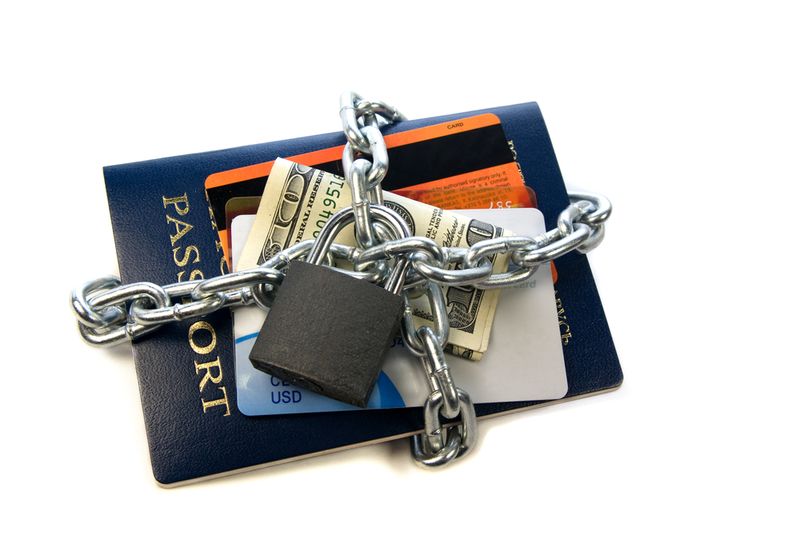
It’s a lot of peoples worst nightmare, and can turn a relaxing vacation or a once in a lifetime trip into an experience you’d rather forget; no, being the victim of a scam is never fun. It’s easier to be tricked while on your travels; when you’re somewhat out of your comfort zone and familiarizing yourself with your surroundings and there are plenty of people out there who (unfortunately) make a living off scamming unsuspecting tourists. Europe, with its many landmarks and attractions is notoriously bad for these kinds of tricks and traps so here are a few simple steps you can take to minimize the chances of being scammed.
Advertisement
1. Question a Great Deal
When you’re not on vacation and you come across a deal that seems too good to be true, more often than not by looking into the details you find out it is just that. It shouldn’t be any different when you’re away from home. If you’re being offered a deal that seems a bit too fantastic, don’t feel pressured to sign up then and there. Take some time, do your own research and be sure and gather as much information as possible before getting on board.

2. Get to Know the Currency
One of the first things you experience when arriving at a new destination is the currency, and it’s a great idea to take a few minutes to get a feel for the notes and coinage and their respective values. Even doing a bit of research prior to your departure is worthwhile. It’s helpful as, for example, the €2 coin looks very similar to coins worth much less, or even absolutely nothing like the 500 lira coin – the Italian currency prior to the establishment of the Euro. Many cities will also offer currency exchange and in some developing countries, people will be ready to greet you and offer unsanctioned exchanges as soon as you leave the airport so being armed with knowledge of local currency and exchange rates will help keep your money where it belongs.

3. Research Scams
Before you take off it’s worth doing a little research by looking into the latest tourist scams doing the rounds in your destination to find out if con artists in your chosen destination have any favoured tricks. Knowing what to look out for will definitely help you avoid being duped. Some classics around Europe include The Found-a-Ring (where a person will approach with a ring asking if you dropped it, when you say no they will show you that it’s pure gold and try to sell it to you for much more than they actually paid for it), The Friendship Bracelet, and The Lost Salesman, although as travelers catch on and word gets out, new and more creative tricks regularly surface.

4. Ask Around
When you initially arrive in your new surroundings, it’s a good idea to ask local staff or fellow travelers about any recent incidents of note, areas to be aware of or any scams that the locals have heard of recently. No one knows the lay of the land like people with firsthand experience, and it only takes a couple of minutes to get the low-down. As a bonus, you might make some new friends or gain some other local knowledge like bar or restaurant recommendations that you can only get through conversations with the right people.

Advertisement
5. Use Your Credit Card
Once you hand over cash, and it turns out you’ve been scammed it’s very unlikely that you’ll ever see it again. For most credit cards you can dispute charges within 60 days of them appearing, meaning paying by card is a great way to go in case things go south as it gives you an option of recourse. Also for this reason, be wary of deals that ask for payment up front and don’t give you any return for 60+ days. Also, most cards offer some sort of payment protection for fraudulent uses but make sure you familiarize yourself with the terms of your specific card before relying on this.

6. Don’t Give Up Information
It seems like common sense, but it’s easy to let your guard down in unfamiliar territory. Only give private credit card or ID info over if you’re completely comfortable with who you’re dealing with. It doesn’t take long to do a background check on the company or deal you’re being offered, and be especially careful of vendors who approach you aggressively, or employ high pressure tactics to rush you into signing up. Also be wary of anyone who offers you a deal but has no credentials or tangible information to back them up, chances are they might be an independent scam artist or even working in an organized tourist scam ring.

7. Use Common Sense
If you’re relaxing on one of Europe’s beautiful beaches, or enjoying a few lagers in a Continental beer hall it’s easy to get carried away or let your guard down. While it’s not good to be constantly wary of everything around you and you should be able to have fun on vacation, it’s still important to remember and use your common sense and trust your gut instincts. Be on the lookout for red flags you’d notice if you were back home, and find the right balance between fun and fact finding. A little planning, research and a keen eye could mean the difference between your dream holiday and a vacation nightmare.

Advertisement